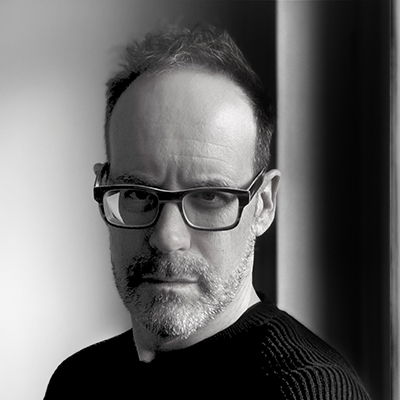
James Bockelman
Professor of Art, Director Marxhausen Gallery of Art
402-643-7490 James.Bockelman@cune.eduBrommer Art Center 105
2003 Outstanding Teacher of the Year Award Recipient
James Bockelman has taught for over thirty years at the university level, with a studio emphasis in drawing and painting. For the past twenty years Bockelman has also directed the Marxhausen Gallery of Art and curated numerous exhibitions. Bockelman's art work has been represented by the Karolyn Sherwood Gallery in Des Moines, the Circuitous Succession Gallery in Memphis, Modern Arts Midtown in Omaha, and at Galerie Inga Kondeyne in Berlin. In addition to group exhibitions throughout the Midwest, Bockelman's work has also been featured in solo exhibitions at the Sheldon Museum of Art in Lincoln, the Museum of Nebraska Art in Kearney, the Norfolk Arts Center in Norfolk, Fiendish Plots in Lincoln, and the Kunstoffice in Berlin, Germany. In 2003, Concordia University presented him with the Outstanding Teaching Award, and in 2007 and 2015 The Nebraska Art’s Council presented him with two Nebraska Arts Fellowship Awards. His paintings were included in the exhibition Art Seen: A Juried Exhibition of Artists from Omaha to Lincoln at the Joslyn Museum of Art in Omaha. Recently his drawings were shown in the exhibition The Body of Drawing: The Touch of Density in Hamburg, Festival du Dessin in Arles, and Focus on Abstraction: High Bunga Low in Berlin. His most recent curatorial project, Drawing Performance: Abstraction from Berlin and the United States, was a collaboration with seven artists from Berlin and six artists from the United States, an exhibition that was shown in two venues in Nebraska before traveling to Berlin for its final exhibition at Galerie Inga Kondeyne. Bockelman earned a Master of Fine Arts in painting from the University of Nebraska-Lincoln in 1997.
James Bockelman's Academic Programs
Undergraduate
Art Education
A degree in art education from Concordia University, Nebraska gives you a broad range of skills with studio- and design-based courses that provide models for both learning and leading in a classroom. Coupled with course work in art history, you will gain exposure to a variety of media, technology and art methods, all of which prepare you to be an art educator.
Art Therapy
The art therapy program at Concordia will prepare you to serve in the health field through your art. A degree in art therapy provides you with a quality foundation for you to use your creative process to help people of all ages improve their health and emotional well-being.
Graphic Design
As a graphic design major at Concordia University, Nebraska, you will be equipped to analyze problems and create solutions using image-, type- and web-based strategies. Through a sequence of studio and design courses that introduce a range of materials and working procedures, you will learn how to organize the flow of communication from classroom to client and into society.
Studio Art
A degree in studio art from Concordia University, Nebraska is a degree in critical thinking, visual and spatial reasoning and creative problem solving. A studio art degree from Concordia Nebraska will help you not only achieve personal fulfillment through creative expression, but also give you the framework to be a professional within the art field.